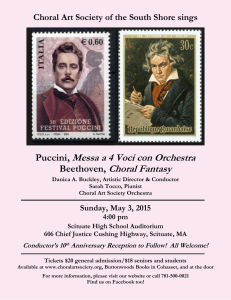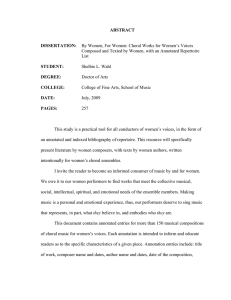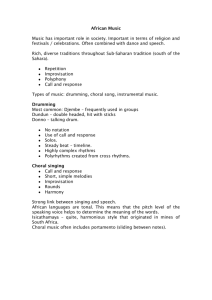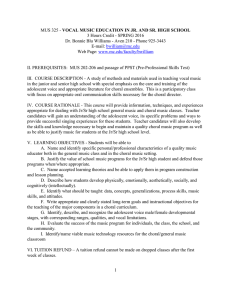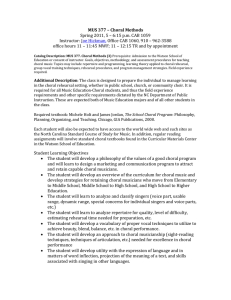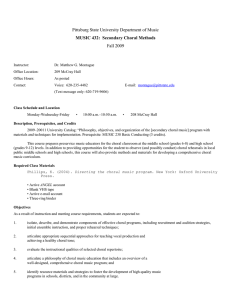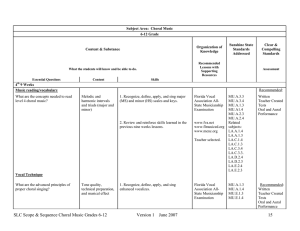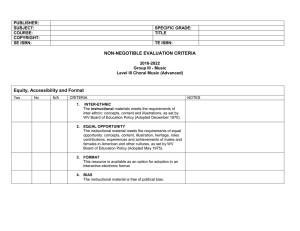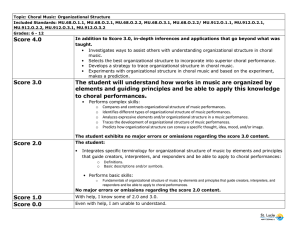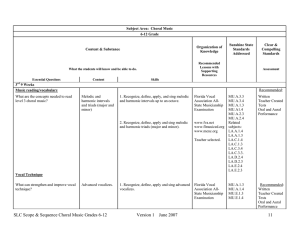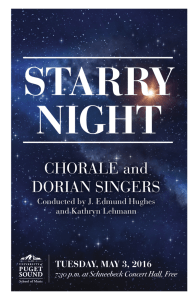ABSTRACT DISSERTATION: STUDENT:
advertisement
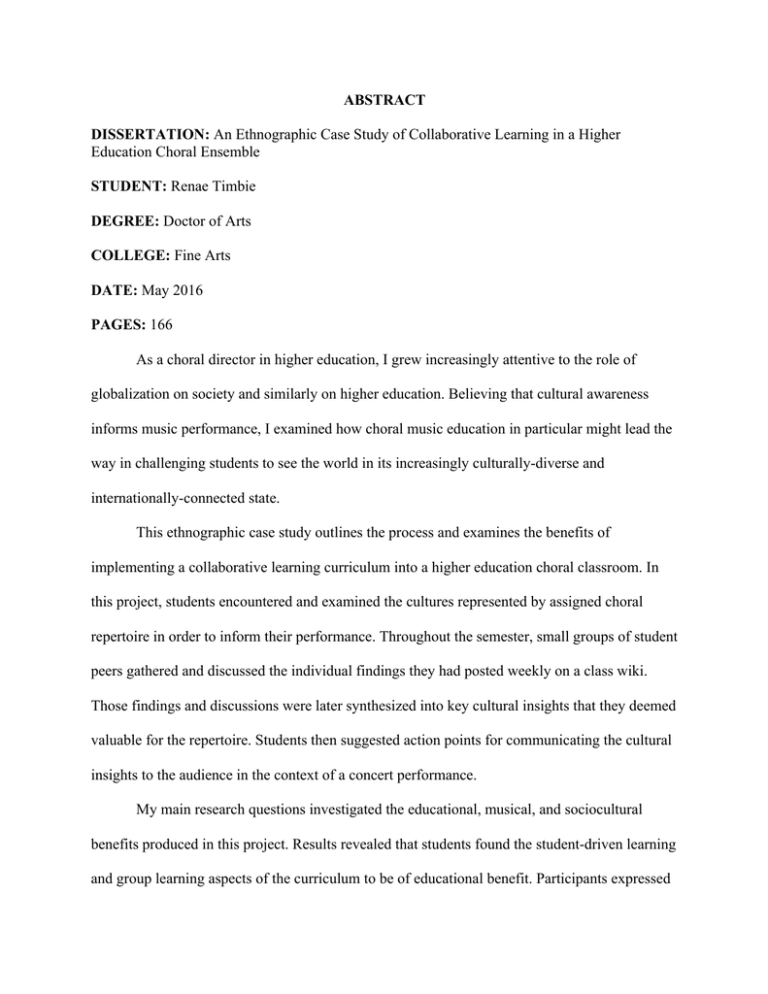
ABSTRACT DISSERTATION: An Ethnographic Case Study of Collaborative Learning in a Higher Education Choral Ensemble STUDENT: Renae Timbie DEGREE: Doctor of Arts COLLEGE: Fine Arts DATE: May 2016 PAGES: 166 As a choral director in higher education, I grew increasingly attentive to the role of globalization on society and similarly on higher education. Believing that cultural awareness informs music performance, I examined how choral music education in particular might lead the way in challenging students to see the world in its increasingly culturally-diverse and internationally-connected state. This ethnographic case study outlines the process and examines the benefits of implementing a collaborative learning curriculum into a higher education choral classroom. In this project, students encountered and examined the cultures represented by assigned choral repertoire in order to inform their performance. Throughout the semester, small groups of student peers gathered and discussed the individual findings they had posted weekly on a class wiki. Those findings and discussions were later synthesized into key cultural insights that they deemed valuable for the repertoire. Students then suggested action points for communicating the cultural insights to the audience in the context of a concert performance. My main research questions investigated the educational, musical, and sociocultural benefits produced in this project. Results revealed that students found the student-driven learning and group learning aspects of the curriculum to be of educational benefit. Participants expressed that the musical preparation, interpretation, and performance of the repertoire also benefited through this process. Additionally, this case revealed that the curriculum produced opportunities for social interaction, for encountering other cultures through the study of music, and for expanding the students’ worldview. This report describes the events and perceived benefits of the student participants as they experienced it. The experiences and opinions of the conductor and students were explored through journals, weekly anonymous surveys, wiki posts, and a final survey. This study offers a viable option to use a collaborative learning curriculum to bring broader context to choral repertoire, to engage students in the study of culture through music, and also to engage students more deeply in choral music making.
